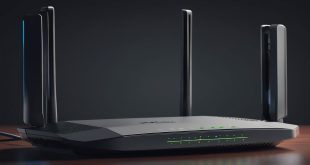The Dark Web has emerged as a well-known haven for illegal activity in the networked world of the internet including the sale of passwords and personal information that has been stolen. Even though its anonymity gives hackers a protective cover it also presents a serious risk to people and businesses whose private data may be compromised. In order to defend oneself against identity theft and cyber threats it is essential to know how to search the Dark Web for such leaks.
A portion of the Deep Web that is not indexed by conventional search engines like Google is known as the Dark Web. To access it you need special software like the Tor browser. Since it is anonymous cybercriminals can trade in sensitive data such as login credentials financial information and personal information on this market. Knowing what kind of information you are looking for is the first step towards scanning the Dark Web for your personal information.
This typically consists of financial data social security numbers email addresses usernames and passwords. Now that you have this information you can start keeping an eye out on the Dark Web for any indications that your data has been compromised. Using specialized Dark Web monitoring tools and services is one efficient way. Businesses that offer services that constantly search the Dark Web for your personal information include Experian Norton and LifeLock. If your data is discovered these services notify you so you can take quick action to secure your accounts and stop additional harm.
You can monitor the Dark Web with free tools in addition to paid services. On the well-known website Have I Been Pwned you can enter your email address to find out if it has been compromised. It doesn’t search the whole Dark Web but it does offer useful information on known breaches that may have exposed your personal information. Using open-source intelligence (OSINT) tools such as Recon-ng and SpiderFoot is an additional strategy. With the help of these tools, you can collect information from a variety of sources such as the Dark Web to determine whether your personal data has been compromised. But to use these tools effectively you often need some technical know-how. Keeping abreast of recent data breaches and leaks is also essential.
The most recent security breaches are frequently updated on websites like DataBreaches.net and cybersecurity news platforms. By keeping up to date you can easily determine whether any of your accounts or personal data may have been compromised in a recent breach. Take quick action to lessen the harm if you discover your data on the Dark Web. In addition to changing the passwords on all impacted accounts, you should also do so if you use the same password for several accounts. To increase security even further whenever feasible enable two-factor authentication (2FA).

In order to stop fraudulent transactions notify your bank and other financial institutions if you believe that your financial information has been compromised. Not only that but you must notify the appropriate authorities of the theft. Reports of cybercrime are handled by specialized agencies and organizations in many different countries. To report identity theft for instance you can do so to the Internet Crime Complaint Center (IC3) and the Federal Trade Commission (FTC) in the United States. Not only does reporting these incidents assist you personally but it also supports larger initiatives to combat cybercrime. Adopt best practices for online security to avoid data leaks in the future. For each of your accounts create a strong one-of-a-kind password. You should also think about using a password manager to manage your passwords. Make sure to update your passwords on a regular basis and refrain from using the same ones on multiple websites.
Avoid falling for phishing scams and make sure any emails and messages you receive are legitimate before clicking any links or sending personal data. Check your internet accounts frequently for any unusual activity. Viewing recent login activity is an option that many online services provide and it can be useful in identifying unauthorized access early on. For your bank and credit card accounts you should also think about setting up alerts so you can be informed of any unusual activity. Keep yourself informed about new developments in information security and educate yourself on the most recent cybersecurity threats. Since the field of cybersecurity is always changing being informed will help you foresee and thwart new kinds of attacks.
In conclusion, one of the most important things you can do to safeguard yourself against identity theft and cybercrime is to search the Dark Web for password and personal data leaks. You can promptly identify and address data leaks by utilizing a mix of monitoring services OSINT tools and keeping up with the most recent breaches. You can further improve your protection in the digital age by implementing robust online security procedures and keeping a close eye on your digital footprint.



